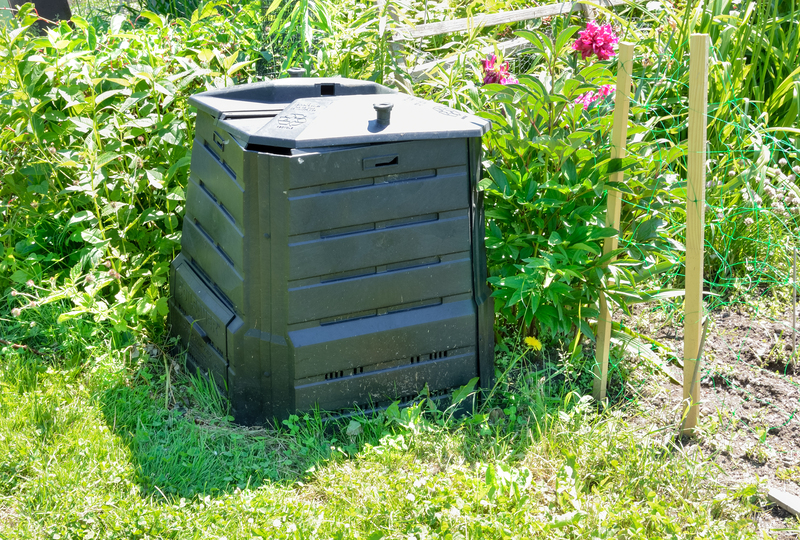Save Big on Bulky Waste Items with These Clever Disposal Tips
Disposing of bulky waste items is often expensive, stressful, and confusing for both homeowners and businesses. From worn-out furniture and large appliances to mattresses, yard debris, and renovation leftovers, finding the right (and legal) way to get rid of unwanted heavy items can save you money and headaches. Whether you're decluttering your home, handling an estate cleanout, or remodelling your space, clever bulky item disposal strategies will help you cut costs, avoid fines, and even benefit your community. Ready to learn how? Read on for comprehensive, actionable guidance!
What Are Bulky Waste Items?
Before diving into bulky item disposal tips, it's crucial to understand what qualifies as "bulky waste". Generally, this term refers to items too large or heavy for regular curbside collection. Typical bulky waste items include:
- Old sofas, armchairs, and couches
- Tables, dressers, beds, and wardrobes
- Mattresses and bed frames
- Large kitchen appliances (fridges, ovens, dishwashers, etc.)
- Garden and yard waste (tree limbs, branches, etc.)
- Carpets, rugs, and padding
- Toilets, bathtubs, and sinks
- Exercise equipment
- Large electronics (TVs, stereos, computers)
- Construction & renovation debris
Disposing of these oversized items typically involves extra fees or logistical hurdles, but there's good news: with some planning and resourcefulness, you can save money on bulky waste removal while minimizing your environmental impact.

Why Bulky Waste Disposal Can Get Expensive
Most local councils and rubbish collection companies charge extra (sometimes hefty) fees to haul away bulky waste. That's because these items:
- Require special collection vehicles and more labour
- May need separate processing or recycling steps
- Often can't be compressed or added to regular landfill waste
If you don't follow local regulations, you might even face fines for illegal dumping or having prohibited items at the curb. That's why a savvy approach to getting rid of large waste items is absolutely essential.
Clever Tips to Save Money on Bulky Waste Disposal
1. Maximize Your Free Collection Quotas
Many cities and municipalities offer residents a certain number of free or low-cost bulky waste collections each year. These quotas can be gold mines for saving money:
- Check your council's website or call the sanitation department to learn your entitlement.
- Group as many bulky items as possible into a single collection to maximize savings.
- If you share your home or strata building with others, coordinate a "bulky item day" and split the available slots.
Taking full advantage of these programs can save you hundreds of dollars per year on large waste removals.
2. Donate, Sell, or Give Away Usable Items
One person's junk is another's treasure! If your items are in decent condition, here's how you can save on bulky waste disposal and help others:
- List furniture and appliances on platforms like Gumtree, Facebook Marketplace, or Craigslist.
- Contact local charities: many will collect large donations directly from your home (think Salvation Army, Habitat for Humanity Restores, etc.).
- Offer items for free to neighbours or via community "Buy Nothing" groups.
Selling or giving away your oversized items can spare you disposal fees and may even put cash back in your pocket!
3. Schedule Curbside Pickups the Smart Way
When municipal or private collection is required, timing is everything:
- Request pickup during community "bulk waste weeks" if available. Fees are often lower or waived during these events.
- Book well ahead--last-minute requests can incur surcharges.
- Consolidate with neighbours to split transportation or service costs.
4. DIY Drop-Off for Bulky Waste
Do you have a vehicle and some muscle? Dropping off your large waste items at a landfill, transfer station, or recycling centre can be far cheaper (and sometimes free) compared to pickups. Here's how to do it efficiently:
- Locate the nearest drop-off sites via your council's website.
- Check what's accepted and any limits on the quantities per visit.
- Pack similar materials together (e.g., all metals, all green waste) for easier offloading and possible recycling discounts.
- Enlist a friend and borrow or rent a trailer or pickup if needed.
5. Use Professional Removal Services Selectively
Sometimes, a junk removal company is the most practical solution, especially for massive clear-outs, estate cleanups, or when you lack time or transport. To minimize costs:
- Get quotes from at least 3 reputable local companies (Yelp and Google Reviews help find top-rated providers).
- Ask if weight, labour, or travel fees can be reduced by preparing items for easy loading.
- Check if any portion of your items (like scrap metal or appliances) qualifies for rebate or reduced charges.
Professional companies are especially helpful for safely disposing of items like fridges (which may require special de-gassing), pianos, hot tubs, or construction rubble.
6. Consider Renting a Skip Bin for Large Projects
Major renovations or big clear-outs? Hiring a skip bin is often cheaper than multiple trips or collections. Here are tips to save even more:
- Estimate your volume carefully to avoid paying for unused bin space.
- Choose companies with flexible rental periods to match your schedule.
- Break down or compact items to maximize bin capacity.
- Only place allowed items in the bin; extra charges apply for "prohibited" materials.
For neighbourhood or strata-wide clean-ups, splitting a skip bin can mean big savings for everyone.
Special Considerations for Specific Bulky Items
How to Dispose of Old Mattresses Cheaply
- Check for mattress recycling programs; some retailers or manufacturers offer pickup when you buy a new one.
- Look for government-sponsored "mattress drop-off events".
- If it's in good condition, offer it to shelters or via community groups.
Getting Rid of Appliances and White Goods
- Call your electricity provider--sometimes they run appliance recycling promotions.
- Metal recyclers may take white goods for free or pay by weight.
- Always remove food, liquids, or hazardous components before disposal.
Flat-Pack Furniture and Wood Waste
- Disassemble to minimize volume and increase chances of recycling.
- Offer usable pieces on upcycling or swap platforms.
- Exclude treated or painted wood from green waste collections unless specified.
Electronics and E-Waste
- Never landfill electronics--use official e-waste recycling programs instead.
- Erase personal data on computers and phones before disposal.
- Some retailers accept trade-ins (sometimes for store credit).
Smart Ways to Reduce Bulky Waste in the First Place
The best way to save on large rubbish removal is to create less bulky waste. Here's how:
- Choose modular, long-lasting furniture and appliances.
- Buy, borrow, or rent instead of always owning seldom-used large items.
- Repair or refurbish instead of discarding at the first sign of wear.
- Shop secondhand--vintage pieces often last longer than flat-pack alternatives.
- Plan renovations to minimize offcuts, over-ordering, or unnecessary demolition.
These habits benefit your budget and the environment!
Eco-Friendly Bulky Waste Removal: Green Your Large Item Disposal
On top of saving money, responsible disposal of large waste items has key environmental benefits. Landfills are overflowing, so the more you recycle, upcycle, or donate, the better for the planet. Consider these eco-strategies:
- Prioritize donation or resale before defaulting to waste bins.
- Seek out specialized recycling for electronics, metals, and mattresses.
- Join or organize neighbourhood swap or giveaway days.
- Choose waste contractors who guarantee eco-friendly disposal methods.
Common Mistakes to Avoid When Disposing of Bulky Items
- Dumping items illegally--this risks hefty fines and environmental damage.
- Putting hazardous or prohibited materials in regular skip bins.
- Piling up more than the allowed quota for curbside collection.
- Ignoring regifting, donation, and recycling options.
- Waiting until the last minute--this often costs more.
By planning ahead and understanding your options, you'll dodge both financial and regulatory pitfalls!

FAQ: Bulky Waste Item Disposal
Is it ever free to get rid of bulky rubbish?
Yes! Many councils offer a set number of free bulky collections for households per year. Certain appliances (like fridges) may be eligible for free removal by utilities or recyclers. Community cleanup days and mattress recycling events sometimes offer zero-fee drop-off.
What happens if I leave out bulky items on the street?
Illegal street dumping can result in fines up to thousands of dollars. Always arrange official collection or removal and follow local requirements for placement and timing.
Can I recycle furniture?
Sometimes! Clean, undamaged wooden or metal furniture may be accepted at recycling centres. Charities, upcyclers, and secondhand stores may accept pieces for resale or refurbishment.
What about large waste at a business or rental property?
Businesses should use licensed commercial waste providers for large loads. Landlords can check with councils for property-specific disposal rules or schedule joint pickups with tenants to reduce costs.
The Bottom Line: Save Big on Bulky Waste with Smart Planning
Getting rid of oversized waste items doesn't have to be expensive or difficult. By:
- Leveraging free and low-cost council collection programs
- Reselling, donating, or giving away usable goods
- Coordinating neighborhood or strata clean-up efforts
- Using transport and skip bins efficiently
- Staying up to date with recycling and responsible disposal options
You'll minimize your disposal costs, avoid fines, and do your part for the environment. Take a few minutes to explore your local bulky waste options, plan ahead, and share these tips with your community. Your wallet--and the planet--will thank you!
If you found this guide useful, don't forget to bookmark it and share with neighbours and friends planning their next clear-out. Clean spaces and happy wallets await!
